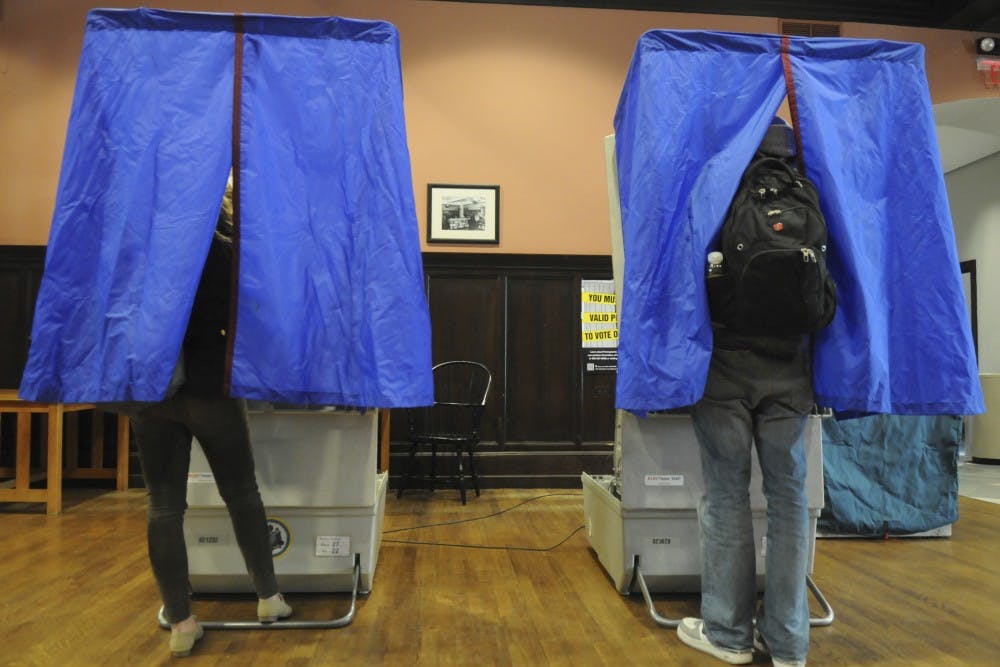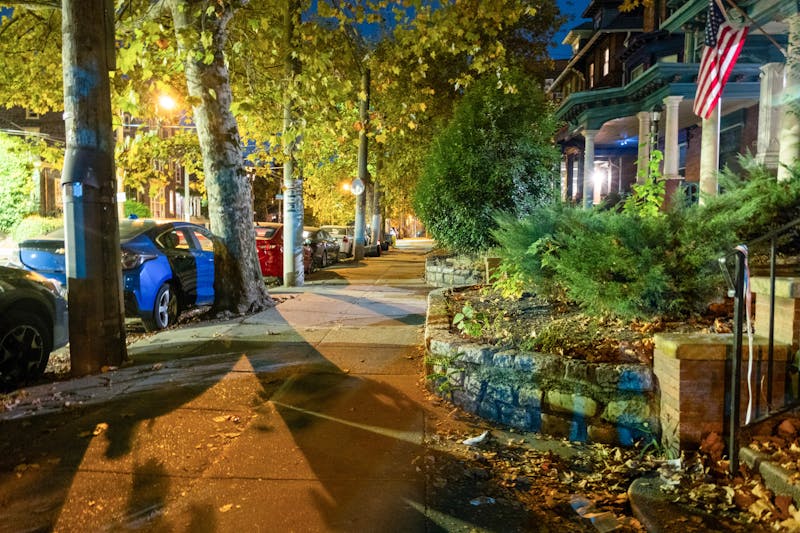
On Tuesday, Pennsylvania voters will wait in lines and check off names as they weigh in on the 2016 presidential nomination. Unlike in previous years, the Pennsylvania primary carries unusual weight because neither party has a candidate that has obtained a majority of the necessary delegates. The real race will take place on the bottom of the Republican ballot, where voters will directly select delegates, almost 80 percent of whom are unpledged.
The Democratic Primary:
The Democratic Party primary is relatively straightforward. Statewide winners get a number of delegates in proportion to how they did in the popular voting. Of the 189 delegates at stake in Pennsylvania, 127 are handed out based on the results in individual Congressional districts, while 62 are pledged based on statewide totals.
Pennsylvania also has superdelegates — consisting of party officials, former and current Democratic politicians — who vote for candidates independent of the popular vote.
Of the 21 superdelegates in the state, at least 18 of them are pledged to former Secretary of State Hillary Clinton, The Boston Globe reported in an April 21 article.
According to The Associated Press, Clinton has 275 more delegates and 477 more superdelegates than Sen. Bernie Sanders (I-Vt.). If Sanders won every delegate in both Pennsylvania and Maryland, which also votes on Tuesday, he could close the delegate gap.
But that seems unlikely since an April 20 poll conducted by Monmouth University found Clinton leading by about 13 points in Pennsylvania. Because of proportional delegation, Sanders would have to win more than 85 percent of the vote in Pennsylvania to close the delegate gap.
The Republican Primary:
The Pennsylvania GOP primary, on the other hand, is one of the strangest primary elections in the country. In Pennsylvania, there are 71 GOP delegates, but 54 are directly elected by Pennsylvania voters. The rest of the delegates are obligated to adhere to the results of the primary for at least the first round of voting at the Republican National Convention in Cleveland this July.
No other state leaves so many of its delegates unbound. Stranger still, the ballot includes no guidance on which candidate the delegate will commit to at the national convention.
On the primary ballot, a Pennsylvanian voter can cast a vote for a presidential candidate and for delegate candidates to go to the Republican National Convention in Cleveland this July. Each Congressional district must pick among the available delegate candidates for three representatives to send to the RNC.
If a Republican enters a voting booth in Pennsylvania’s 2nd district, which includes Penn’s campus, they would see four delegates — Aaron Cohen, Aldridk Gessa, Elizabeth Havey and Calvin Tucker — but would receive no guidance on who the delegates support. Gessa has voluntarily pledged to Sen. Ted Cruz (R-Texas), Cohen and Tucker are uncommitted and Havey has said she will vote for whomever wins the district popular vote.
At least 50 other delegate candidates have promised to vote for the winner of their congressional district or the statewide primary, which appears to be 1968 Wharton graduate Donald Trump. In the latest Monmouth poll, Trump held a 13-point lead over Cruz and a 15-point lead over Kasich.
Will Trump Win?
Even though Trump leads in Pennsylvania polls, that advantage may not translate into more delegates.
The first thing to consider is the presidential primary preference vote. The winner of this contest gets all of Pennsylvania’s 17 at-large and bonus delegates. Voters select the other 54 delegate candidates, who are not listed with any candidate allegiances.
Some of the delegates have publicly announced who they will support so voters know which candidate they are backing in the primary. This process causes campaigns to lobby different delegates in order to secure a public promise of their votes at the RNC.
Because unpledged delegates do not have their support listed on the ballot, as is the case in other states, Republican voters could unknowingly vote for a delegate who supports a presidential candidate they do not support.
Unpledged delegates are also not bound to vote for the presidential candidate they have endorsed. For example, the delegate candidate could say they will vote for Trump or the statewide winner and then vote for Ohio Gov. John Kasich at the convention if they wanted.
Political pundits have said that Trump cannot rely on Pennsylvania delegate votes at the convention because there will be a lot of pressure on the delegates to not vote for him.
At the Cleveland convention, most delegates are required to vote for a specific candidate on the first ballot, unlike most of the delegates in Pennsylvania. Trump would be favored to win a majority of Pennsylvania’s 71 delegates under any other primary system.
This “loophole primary,” as some media outlets have called it, results in Pennsylvania’s delegation playing a major role at the convention. The Pennsylvania GOP primary thus presents an opportunity for Cruz and Kasich to acquire delegates from Trump and impede his path to the nomination.
The Daily Pennsylvanian is an independent, student-run newspaper. Please consider making a donation to support the coverage that shapes the University. Your generosity ensures a future of strong journalism at Penn.
DonatePlease note All comments are eligible for publication in The Daily Pennsylvanian.







